For our fourth annual roundup of the most influential people on the Internet, TIME evaluated contenders by looking at their global impact on social media and their overall ability to drive news. Here’s who made this year’s unranked list.
BTS
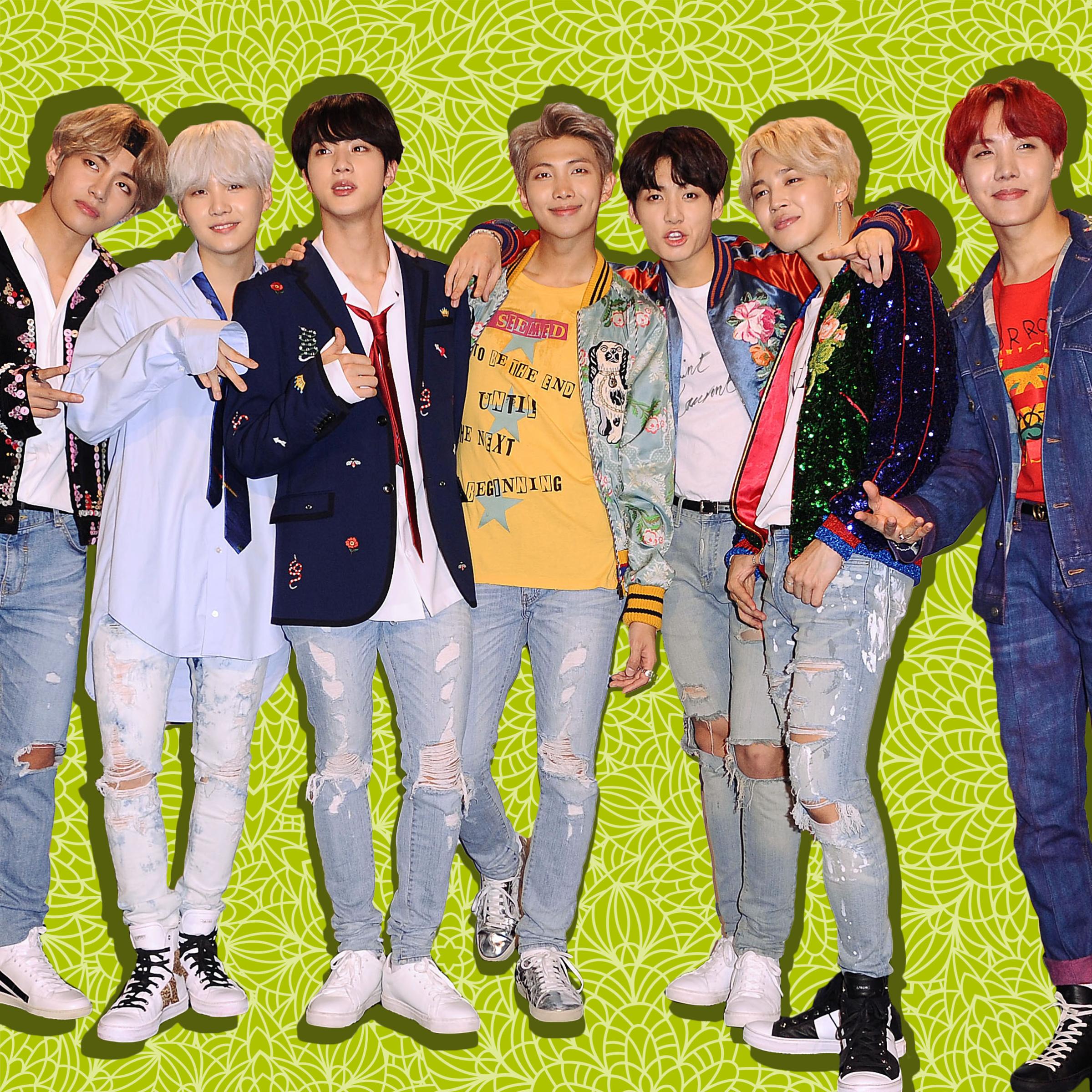
About half a decade since their debut as a group, seven-member Korean pop act BTS—which they translate as “Beyond the Scene” in English—continues to gain global momentum. They’ve already broken at least one of their own U.S. records in 2018, releasing the highest-charting K-pop album ever (Love Yourself: Tear, which debuted atop the Billboard 200). But the real engine behind their success is their passionate social fanbase, who style themselves as the “ARMY” and eagerly consume anything related to the group, from tweets to videos. For example, the YouTube views within 24 hours for their music video “Fake Love” almost surpassed Taylor Swift’s and Psy’s all-time records—no small feat. The group has notched over 89 weeks atop Billboard’s Social 50 chart, besting Justin Bieber, and recently won Top Social Artist at the Billboard Music Awards for the second year in a row. A steady social media presence for each of the boys—along with periodic solo releases—further bolsters the group, which counts at least 50 million followers across English-language social media platforms. —Raisa Bruner
Logan and Jake Paul
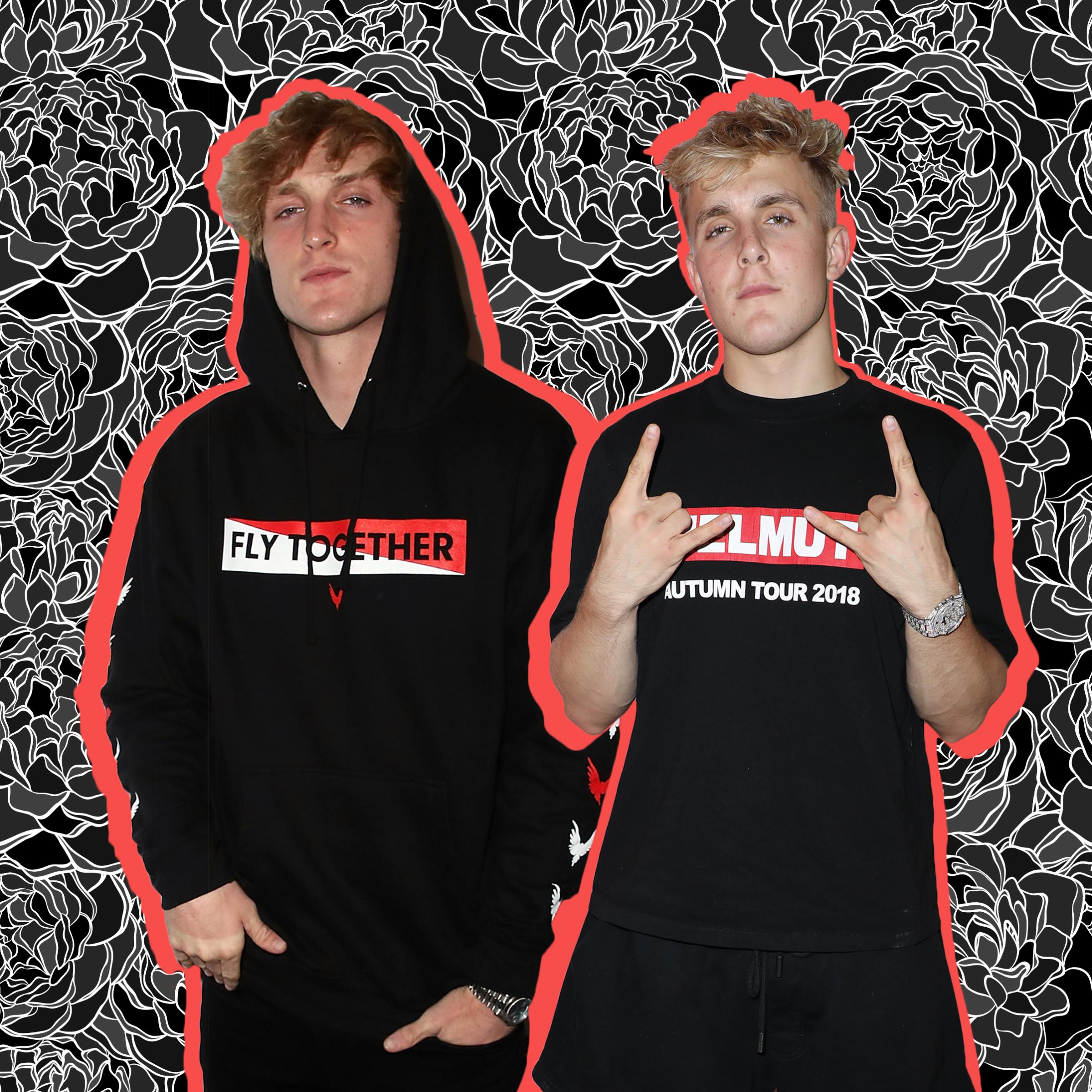
The Paul brothers—two of YouTube’s biggest stars—are no strangers to controversy: In 2018 alone, YouTube dropped 23-year-old Logan as a preferred ad partner following an incident in which he filmed himself discovering an alleged dead body in Japan’s “Suicide Forest,” and 21-year-old Jake came under fire for using the N-word while rapping. But their fans—known as the Logang and Jake Paulers, respectively—don’t seem to mind. Combined, Logan and Jake tally more than 33 million subscribers on YouTube, 27 million followers on Instagram and 21 million fans on Facebook; Forbes estimated Logan’s net worth as $12.5 million and Jake’s at $11.5 million. And they’re branching out beyond vlogs, too: last year, Logan launched his own apparel line, Maverick, and Jake has released several rap singles; inspired by the success of Fortnite, Jake also expanded his vlogging collective, Team 10, to include a gaming division.—Megan McCluskey
Rihanna
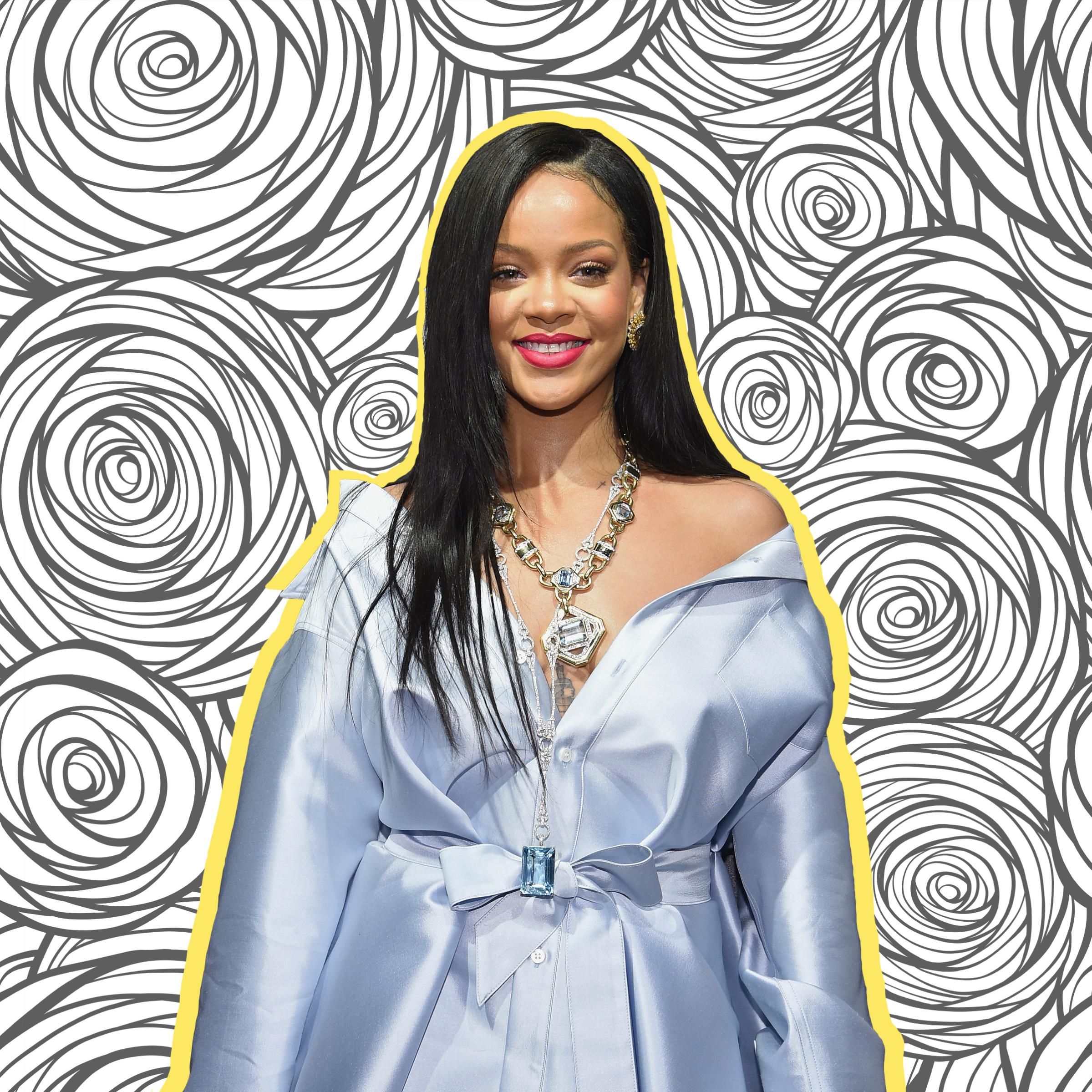
When Rihanna speaks—or, more precisely, ‘grams—the world listens. In March 2018, she posted an Instagram story denouncing an ad that appeared on Snapchat that used her image to make light of domestic violence, of which she is a survivor. Soon after, Snap Inc. lost $800 million in value. In May, she posted photos of herself in swimwear with visible stubble on her legs, inspiring a wave of online declarations that shaving, for this summer at least, is no longer required. But part of what makes the 30-year-old singer and entrepreneur so successful on the Internet is her own ability to listen. She listened and heard that there was a large segment of the population that felt underserved by the beauty and fashion industries, and she responded with her wildly successful makeup line, Fenty Beauty, and lingerie line, Savage x Fenty. Both were instant hits, thanks in part to Rihanna’s savvy use of social media to market them. The money—and the followers—are pouring in, with no signs of slowing. —Eliza Berman
Charlotte and Dave Willner

Earlier this month, after reading that more than 2,000 children had been separated from their families as part of the Trump Administration’s controversial “zero tolerance” immigration policy, the Willners wanted to help. So they created a Facebook fundraiser titled “Reunite an immigrant parent with their child”; their goal was to generate $1,500 for the Refugee and Immigrant Center for Education and Legal Services, a Texas-based nonprofit, better known as RAICES, which provides legal help to immigrants and refugees. Instead, it became the most successful single fundraising campaign in Facebook history, raising more than $20 million from more than 500,000 people. “This fundraiser started with the hope of reuniting maybe one family, but it grew,” the Willners wrote on the fundraising page. “It grew so big that it couldn’t be ignored.” RAICES’ executive director Jonathan Ryan told the New York Times the money would go toward providing immigrant families with legal aid, hiring more help and paying bonds so parents could be released from detention centers and brought back to their children. —Melissa Chan
Naomi Watanabe

With 8 million followers on Instagram, 30-year-old Watanabe is Japan’s most popular star on social media. She’s also one of its most fearless, expertly using her platform as a comedian and fashion designer to challenge long-held stereotypes about Japanese women. Watanabe catapulted to fame 10 years ago after her over-the-top impersonations of Beyoncé and Lady Gaga went viral—becoming known as the “Beyoncé of Japan.” Her endearing personality and brash sense of humor have since helped her land gigs as a judge on X Factor Japan and a cast member on the country’s version of Saturday Night Live. She’s also making waves in fashion, getting an endorsement deal with Gap and seats at recent Fendi and Gucci runway shows; in 2014, she released her own clothing line, Punyus, which carries sizes up to a U.S. 16. “I want to tell people to love themselves as they are,” Watanabe tells TIME. “I want them to treasure what they have—that’s how I gained confidence.” It’s all part of Watanabe’s appeal both on- and offline: a commitment to being herself. —Cady Lang
President Trump

FDR had the radio. JFK had TV. Trump has Twitter. The President rode to the office of the presidency on a 140-character soapbox (now 280) and has since turned it into the ultimate presidential bully pulpit. In the past, he singled out individuals as “weak” and “insecure,” in addition to a barrage of personalized insults; most recently, he called Congresswoman Maxine Waters “an extraordinarily low IQ person.” Sometimes, those tweets also undermine his own administration, such as when he announced a transgender military ban before the policy was implemented. And although Trump’s unorthodox stream of consciousness may generate headlines and galvanize his base, it has also raised concerns among national-security officials. That could be why a majority of respondents to an Economist/YouGov poll said Trump’s Twitter style is inappropriate. In November, one former contract employee working for Twitter appeared to be so fed up by Trump’s online presence that he suspended the President’s account on his last day of work, though he now asserts the 11-minute period where people couldn’t access @realDonaldTrump’s Twitter feed was a “mistake.” —Abby Vesoulis
Daniel Baker and Joel Martinez (a.k.a. Desus and Mero)
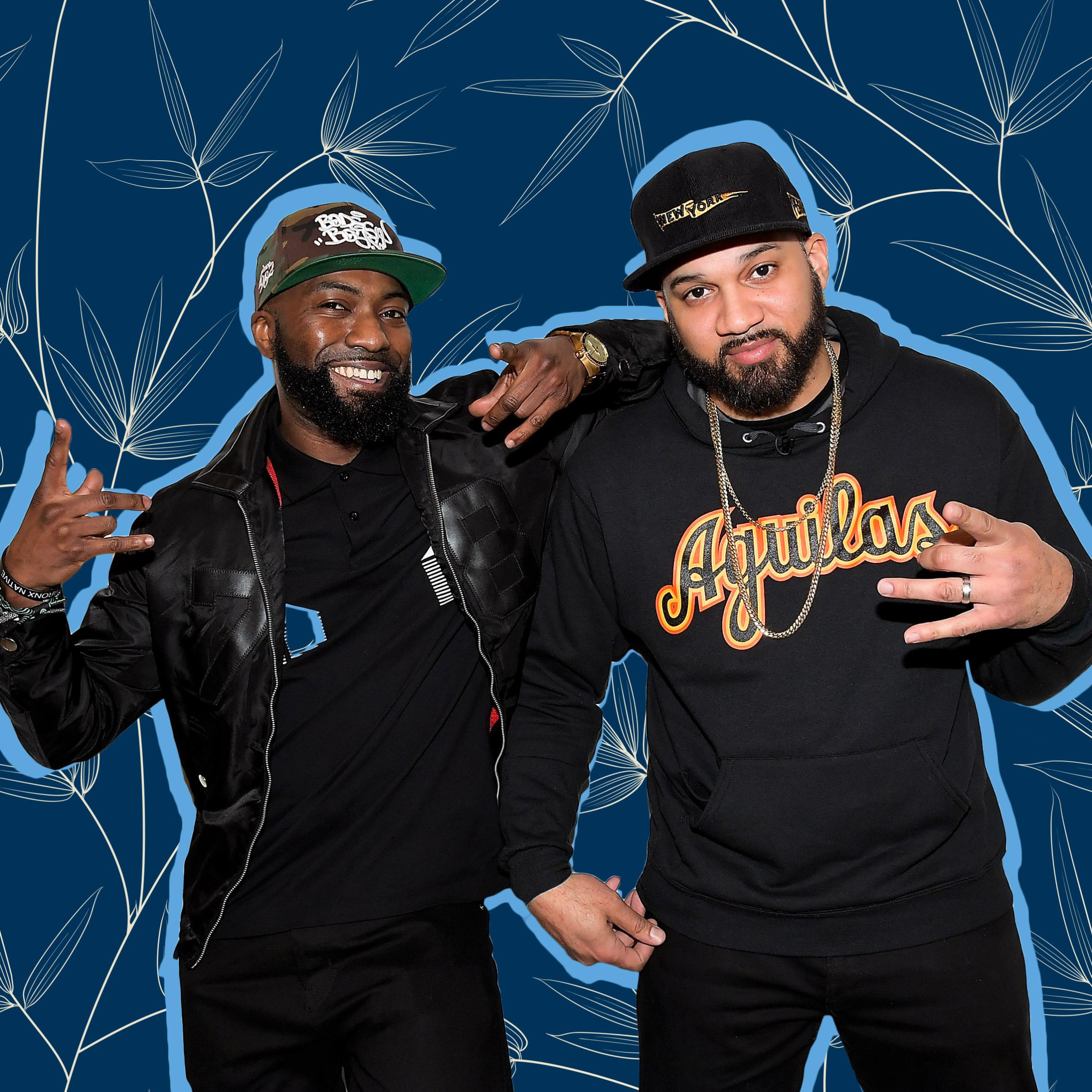
Comedy duo Desus Nice and The Kid Mero—real names Daniel Baker and Joel Martinez—are a fairy tale for the internet age. The Bronx natives met during summer school but reconnected years later on Twitter, where their pithy, street-smart jokes earned them retweets, replies and followers galore. (Their combined following on Twitter currently clocks in at more than a million.) Their viral popularity and irreverent humor led to podcasts, hosting gigs with MTV2 and eventually, an unscripted late-night show on Viceland where they dissect politics and pop culture and feature guests ranging from Kirsten Gillibrand to Sean ‘Diddy’ Combs. The pair will bring their signature wisecracking energy to Showtime in 2019, where they’ll host the network’s first weekly late-night show. In their own words, “the brand is strong.” —Cady Lang
Sia Cooper (a.k.a. @DiaryOfAFitMommyOfficial)

If you’ve spent any time on Instagram, chances are Cooper’s handle, @DiaryOfAFitMommyOfficial, has appeared in your feed—even if you don’t follow her. Cooper is a fitness blogger, but it’s her ubiquitous comments on the Instagram accounts of celebrities (including phrases with fire and heart emojis) that have helped turn her into one of the most notorious accounts on the social media platform. Cooper says she’s always commented on celebrity accounts, but an algorithm change this spring caused her to often show up as one of two “sticky” comments on the Instagram posts of social media darlings like Kim Kardashian West and Chrissy Teigen. Cooper’s status as a top commenter catapulted her to a new level of online visibility—she told Vogue she gained 80,000 new followers after the algorithm change—but it has also brought a robust wave of haters on the web, including those who criticize her parenting style, and Cooper says, even send her death threats. Cooper’s persistence has paid off: Her commenting and content has netted her more than 1 million Instagram followers and $500,000 in annual earnings as a social media influencer. —Cady Lang
Kanye West
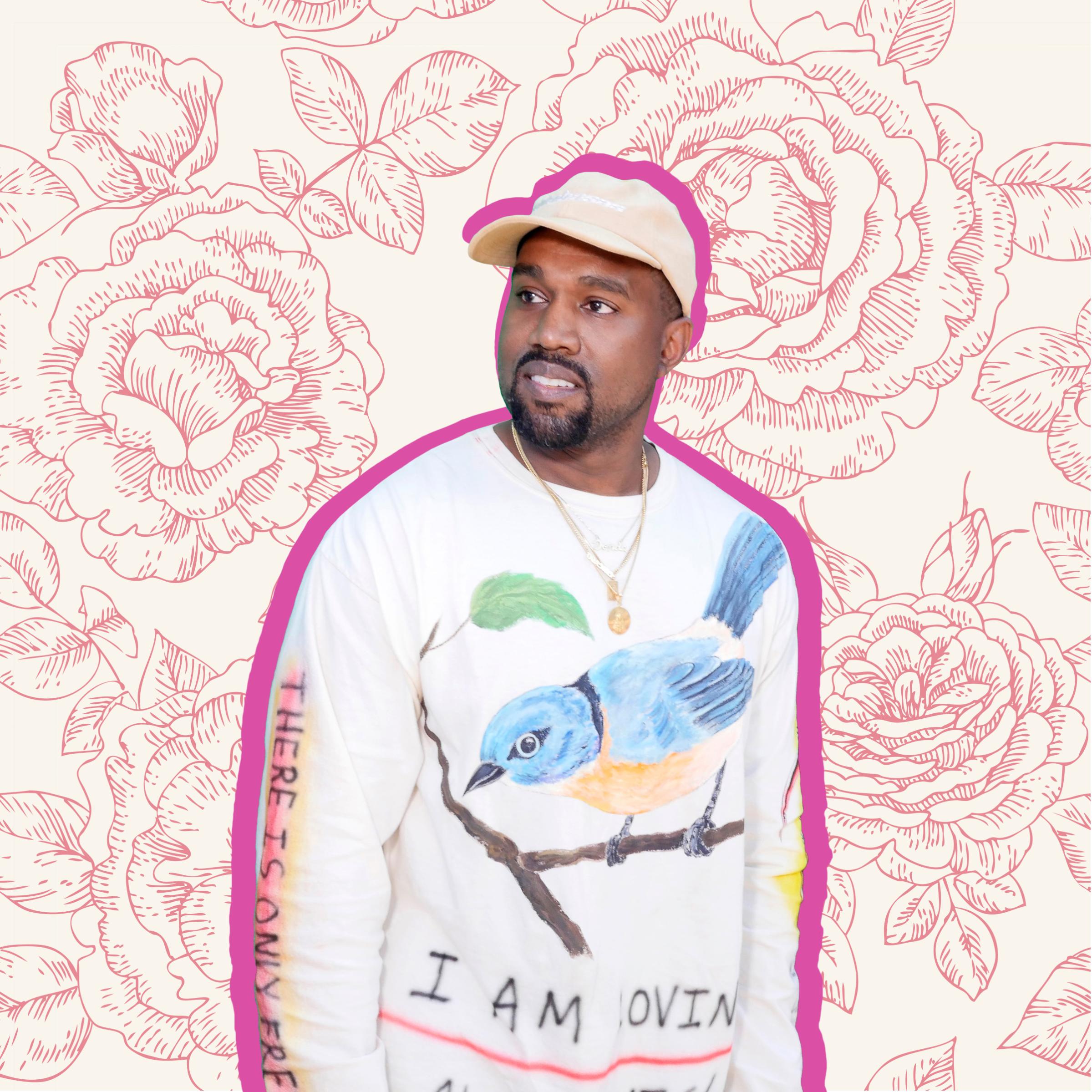
West once called his own tweets a form of “contemporary art.” And to some, his musings on Twitter—erratic, unfiltered, controversial—are just that. To others, however, they’re more problematic, if not downright offensive. Since returning to the platform in April after a nearly year-long hiatus, many fans have been alternately baffled, angry and saddened to see the same artist who, in the aftermath of Hurricane Katrina, accused President Bush of not caring about black people, call President Trump his “brother,” post an image of a Make America Great Again Hat, and defend his comments about slavery being a “choice.” But despite calls for West to be “cancelled,” his recently released album, Ye, debuted atop the Billboard 200. No matter what, his online persona—with 28 million followers—keeps him squarely in the public eye.—Eliza Berman
Roland Szabo
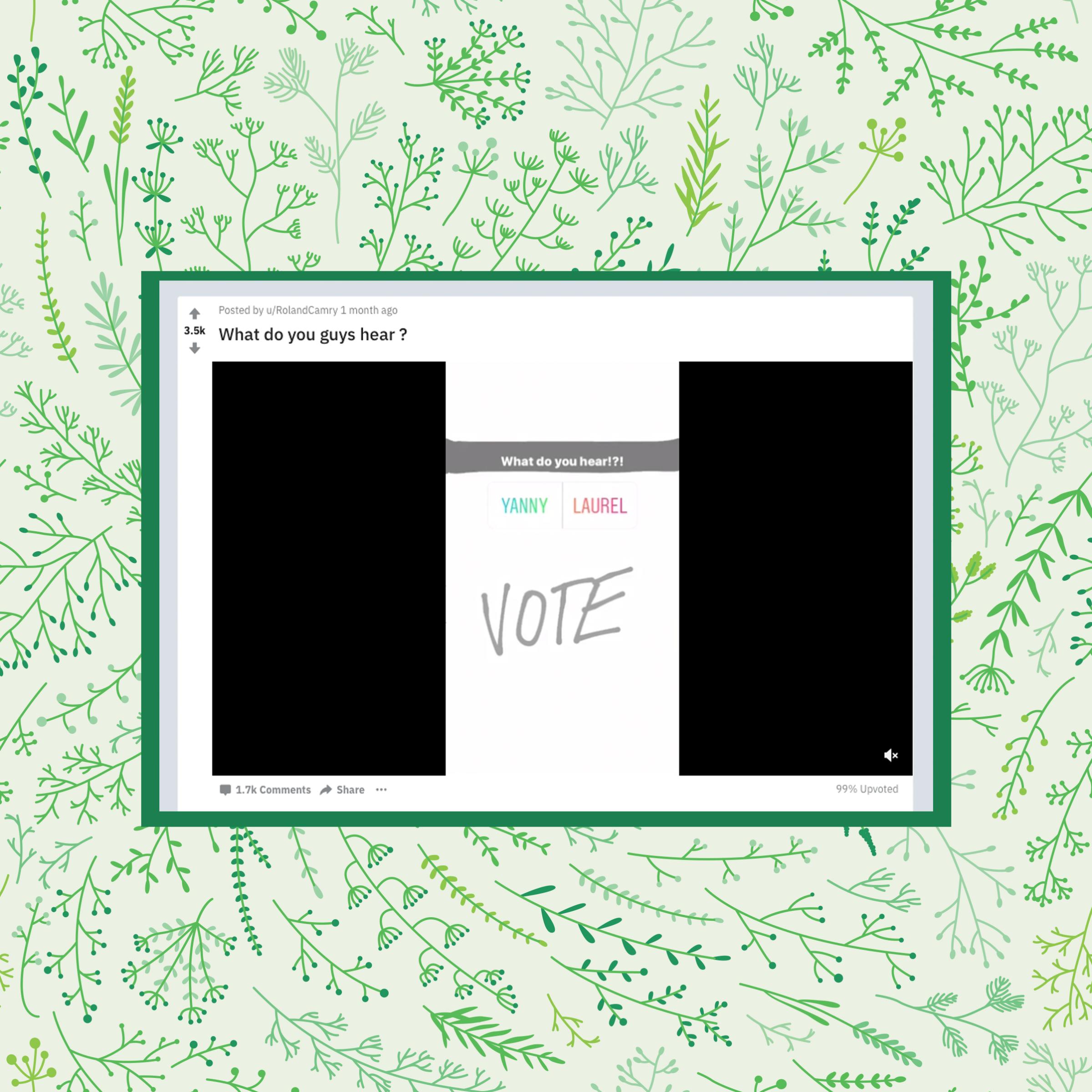
Yanny or Laurel? With one simple prompt, an 18-year-old high school student from Georgia divided the entire internet. After his friend discovered an audio recording on vocabulary.com of someone pronouncing the word “Laurel” in a way that also sounded like “Yanny,” Szabo took matters into his own hands. He posted the clip on Reddit, thinking it would get lost among thousands of other posts. Instead, it quickly garnered more than 3,000 upvotes within three days. It only became more popular after 20-year-old YouTuber Cloe Feldman re-posted the clip to more than two hundred thousand Twitter followers. From there, it became a viral sensation, generating headlines and prompting reactions from celebrities, the White House and even the singer Yanni himself. In many ways, Yanny vs. Laurel was reminiscent of The Dress as people debated fiercely for days over what they believed. “I am happy that I had the chance to have a mark on pop culture,” Szabo told TIME. —Mahita Gajanan
Eman al Nafjan

When the longstanding ban against women driving in Saudi Arabia was lifted on June 24, Eman al–Nafjan, one of Saudi Arabia’s most prolific blogger-activists on the subject, should have been celebrating. She had written on the subject of women’s rights in Saudi Arabia at SaudiWoman’s Weblog for nearly a decade, and raised awareness in a way that few outside the Kingdom ever could. (Her bilingual blog was often the first stop for foreign journalists planning to visit the country, helping them make sense of the inherent contradictions between being a Saudi woman and striving for rights that many Saudis deride as “Western feminism” antithetical to Saudi traditions.) But her international recognition may have been her undoing. In May, al–Nafjan, along with several other Saudi human rights activists, was detained and jailed on unspecified charges. State media has labeled her a traitor, a charge that can merit up to 20 years in prison—proof that, even as Saudi Arabia appears to modernize, there can be high costs to challenging the leadership. —TIME Staff
Scott Rogowsky

Rogowsky was getting ready to leave New York, where he had pursued a comedy career, for life in Los Angeles when he snagged a hosting audition for HQ Trivia, a live game app promising cash prizes to winners. Since launching in 2017, HQ Trivia—and Rogowsky himself—have blossomed into phenomenon, reaching millions of players who tune in twice a day to answer the game’s 12 questions (which range from easy to obscure) in an attempt win money. The wildly addictive app’s success is driven in no small part by Rogowsky, whose monologues and witty banter in between questions have united eager competitors across the world. Known by affectionate nicknames like Quiz Daddy or Trap Trebek, Rogowsky—and his puns—are a big part of why so many people hanker for their HQ Trivia fix each day. While a team of writers usually prepares material for Rogowsky, the onetime improv comedian frequently goes off script and his humor and style keep players returning to the game. As one fan put it on Twitter, “everyone needs 15 minutes of scott in their lives.” —Mahita Gajanan
The Women of #BabaeAko

Since taking office in June 2016, Philippine President Rodrigo Duterte, 73, has developed a reputation for rape jokes and sexist comments. But on May 20, a few days after he stated that a woman should not be the next Chief Justice, a dozen women—from activists to artists—decided they’d had enough. Under the hashtag #BabaeAko (I Am Woman), they uploaded videos calling out sexism in the Duterte administration. “With every misogynistic statement, he is saying ‘you can do the same because I get away with it,’” says Inday Espina-Varona, 54, a journalist and one of several co-founders of the movement. Since then, Filipinas across the country have spoken out, including Congress representatives and a former Duterte cabinet member. (The president’s closest aide has called the campaign “clearly political.”) On June 12, eight days after Duterte kissed a married woman onstage in Seoul, 1,000 protesters marched in The Philippines with #BabaeAko banners. Some called for his resignation and more protests are planned in July. “Society looks up to him,” says 55-year-old actress Mae Paner, another co-founder. But Duterte, she says, still needs to be taught how to “simply be human.”—Naina Bajekal
Ryan (a.k.a. Ryan ToysReview)

Most kids play with toys. But this 6-year-old has made a career of it. Thanks largely to a 2015 video in which Ryan, then 3, reviewed 100 toys at once, his YouTube channel, Ryan ToysReview, became a viral phenomenon. Now Ryan’s daily vlogs—many of which feature him “unboxing” new toys—rack up millions, and sometimes even billions, of views. At one point last summer, Ryan ToysReview had been the most-viewed YouTube channel in the U.S. for 40 weeks in a row. More recently, he ranked 8th on Forbes’ annual list of the World’s Highest-Paid Youtube Stars, pulling in $11 million. —Megan McCluskey
Shaun King

King first rose to prominence alongside the Black Lives Matter movement after using Twitter to share details about the death of Michael Brown, the 18-year-old who was fatally shot by a police officer in Ferguson, Mo., in 2014. At the time, King, a former pastor turned journalist and activist, had 100,000 followers; now he counts more than a million. But his mission remains the same: to raise awareness about the plight of marginalized communities—even as critics liken his methods to mob justice. “How people feel about me doesn’t affect the work that I do,” King says. “I care about the people and causes I’m fighting for.” In the past year, King amplified stories about racism at Starbucks and the Unite the Right rally in Charlottesville, Va., as well as one about a police officer’s sexually assaulting a Texas woman during a traffic stop that proved to be false. More recently, he asked his followers to identify a white man recorded on video screaming and threatening to call ICE on Spanish-speaking workers at a New York restaurant. Within hours, the case made national headlines and the man’s name was trending on Twitter. “Hey Aaron Schlossberg, You are now famous,” King tweeted. “You will be known for your overt bigotry and harassment for a very long time.” —Cady Lang
Tony Liu and Lindsey Schuyler (a.k.a. @DietPrada)

In fashion, there’s a fine line between influence and imitation. Liu and Schuyler are using their Instagram account, Diet Prada, to draw it. More than half a million followers—including Marc Jacobs, Chrissy Teigen and Gigi Hadid—follow the watchdogs of Diet Prada, both freelance designers in New York City, for alerts on supposed copycats. In some instances, the accused offenders have attempted to make amends. In May, after Diet Prada criticized Kanye West for attempting to take credit for the sketches of designer Tony Spackman, the rapper issued a mea culpa on Twitter, saying he fired a Yeezy designer who had “presented work that was not of their own” and acknowledged Spackman as the “true creator” of the sketches. Later that month, Diet Prada shamed Target for selling a T-shirt bearing an illustration of a rainbow flag that was nearly identical to the work of a lesser-known Mexican artist. The retailer pulled the shirt from its website. “It really just feels wrong when someone is monetizing someone else’s creative works,” Liu, 32 tells TIME. “We both really care to protect creativity and push for more integrity throughout the industry.” —Melissa Chan
Matt Drudge

Drudge’s eponymous online Report is a throwback: old-school black and white, text that looks like it was literally typed on a typewriter and grabby New York tabloid-style headlines. But what began as a mix of Hollywood and Washington gossip—Drudge made a name for himself in 1998 as the first news source to publish the Bill Clinton-Monica Lewinsky affair after Newsweek initially withheld their coverage—has quickly exploded into a hotbed of aggregated news articles from a variety of factual sources. Now, the Drudge Report is the right’s megaphone. The site keeps no archives, and Matt Drudge himself deletes his tweets daily, which allows him to remake the site anew every day. But the site remains a powerful driver of web traffic and the spread of political news online, with over a billion monthly page views. One of the site’s visitors is President Trump, who this year called Drudge a “great gentleman” who “really has the ability to capture stories that people want to see.” —Abigail Simon
Kayla Itsines

Perhaps nobody epitomizes the “fitfluencer” label better than Itsines, who has leveraged her passionate online following into a workout empire. The 27-year-old Aussie entrepreneur and personal trainer started her business in 2014 with a series of “Bikini Body Guide” e-books that offered straightforward, results-driven exercise and nutrition advice. Now she counts nearly 10 million Instagram followers and her signature app, Sweat, has been downloaded more than 30 million times. (It’s also the highest-grossing app in Apple’s fitness and health category, bringing $77 million this year alone.) On social media, she posts inspirational sayings, gym selfies and before-and-after photos from her online acolytes—just check the popular #BBG hashtag. Most recently, she’s been trying to help women conquer their fear of working out with weights while adding audio cues to her app so her fans feel “like they are working out with me in real life,” Itsines tells TIME. Next up: expanding with what she calls “even more holistic” product offerings for the gym experience and wellness goals. “To be able to help this many women achieve their health and fitness goals is beyond my wildest dreams,” she says. —Raisa Bruner
‘Q’

Last October, an anonymous user, known simply as Q, started posting cryptic messages on the controversial message board 4chan—the common theme being that President Trump is a secret genius and his opponents, namely Hillary Clinton and Barack Obama, are evil. Q reportedly claimed to be getting this information directly from the government, thanks to top-secret, “Q-type” security clearance. There has been little—if any—hard evidence to support Q’s musings. But over time, thousands of people started to believe them—or at least, to acknowledge they might be real. And they became the foundation of a wide-ranging conspiracy theory, known as QAnon, that has been covered by the New York Times and New York Magazine, among others, and discussed in more than 130,000 videos on YouTube. One of its most prominent followers: Roseanne Barr, who tweeted several references to QAnon before being fired from her hit TV show in May. —Melissa Chan
Busy Philipps
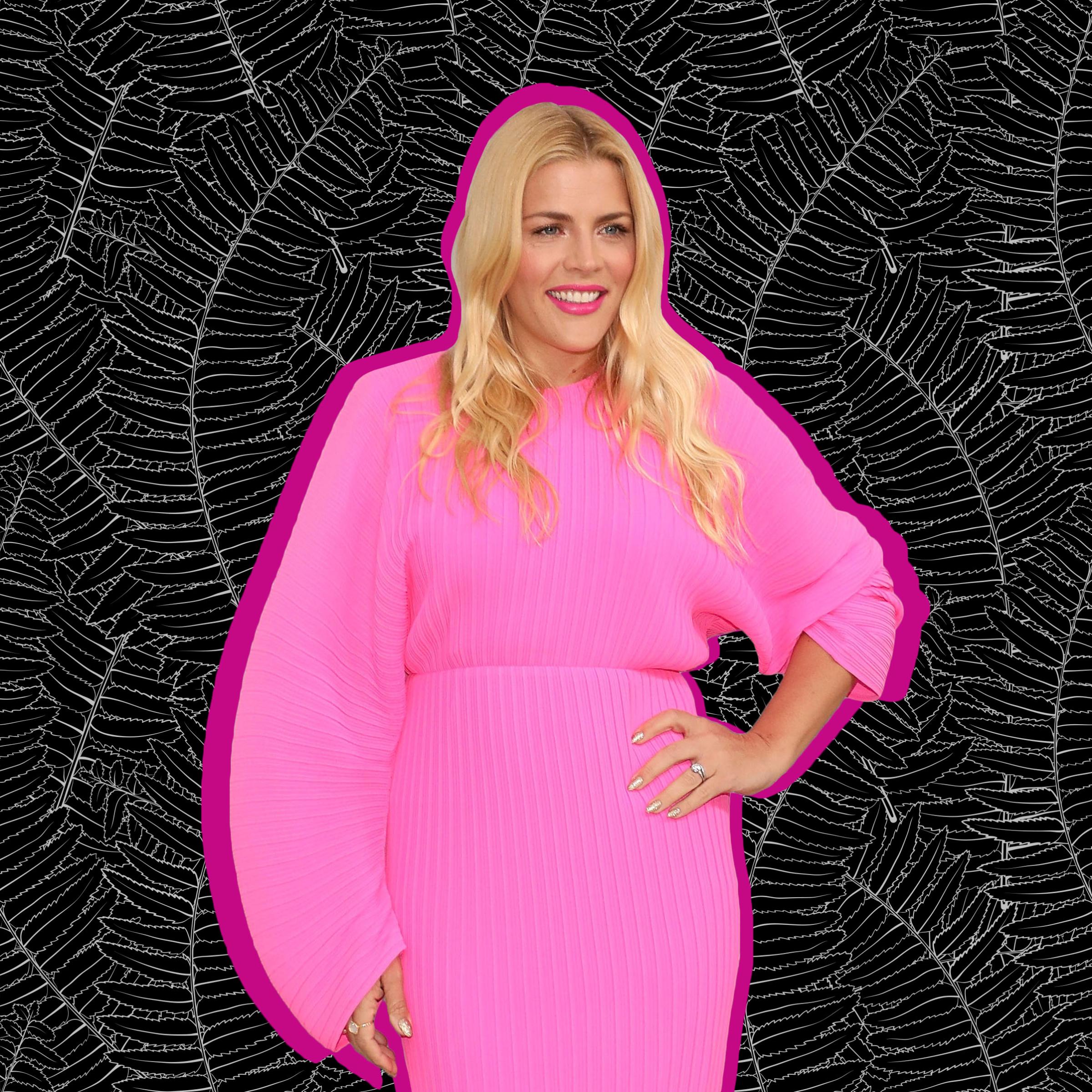
Busy Philipps has been, as she puts it, an “actor for hire” for 20 years—appearing on cult classics like Freaks and Geeks and Dawson’s Creek in the early 2000s, and shows such as Cougar Town and Vice Principals in the 2010s. But now she may well be more famous for living out loud on Instagram. In November 2016, she began using the platform’s new Stories feature to narrate her everyday life. It is, of course, a pretty charmed one—she’s chronicled everything from having a front-row seat to the Best Picture mix-up at the 2017 Oscars to getting locked out of her house after attending the Golden Globes, all of which were covered by entertainment media. But her unscripted messages—usually delivered directly to the camera in minute-by-minute bursts—also address deeper topics, including what it’s like to raise two kids as a working mom and her struggles with mental health. And they’ve helped her connect with more than 1 million followers, many of whom, she says, see her more as a friend than an actor. “People really feel like they know me on a deep level—and they do to a certain extent,” she says. “I really put a lot out there.” Because of her newfound fame, Philipps has earned a book deal, lucrative partnerships with brands such as Michaels and Campbell Soup and recently, her own late-night talk show on E! On a social-media platform filled with celebrities and influencers promoting specific ways of life, Philipps stands out—simply by being herself: “It never occurred to me to be any different way.” —Megan McCluskey
Tyler Blevins (a.k.a. Ninja)

Blevins may not be as renowned as LeBron James or Cristiano Ronaldo, but there’s no doubt he’s a most valuable player. His arena of choice: Fortnite, the wildly popular battle-royal video game, set in a postapocalyptic future. There, 27-year-old Blevins plays as Ninja, a revered figure whose live streams—filled with goofy commentary that can touch on tangential subjects like the best brands of children’s cereals—have generated more than 230 million views on Twitch.tv. “Staying as positive as possible is always great,” says Blevins, who lives in suburban Chicago, of his live-streaming strategy. “It’s the streamer’s job to leave all their sh-t at the door and put on a show.”
His offline empire is also expanding. In June, Ninja inked sponsorship deals with Red Bull and the PSD underwear brand; on July 21 he’ll host an overnight Fortnite tournament on the 99th floor of the Willis Tower in Chicago. Blevins is now earning about $1 million a month and cites the singer Drake—with whom he has played Fortnite—as a role model. “He just keeps putting out better and better stuff,” says Blevins. “I’m just going to keep doing that with gaming. That’s the plan.” —Sean Gregory
Lil Miquela

Lil Miquela has all the makings of an Instagram ingenue, from the effortless good looks to the philosophy-lite selfie captions (“You can be not okay and still be strong”). The glaring difference? The self-described artist—also known as Miquela Sousa—isn’t actually real; she’s a virtual avatar whose origins and purpose are mysterious. (She was built by an entity called Cain Intelligence—which may or may not exist—before being taken over by Brud, an L.A.-based computer-software firm, but she is no longer managed by Brud, a publicist says.) That hasn’t stopped the fashion world from embracing Miquela as a style icon. In February, Prada tapped her to help promote its new line of animated GIFs on Instagram. In March, she appeared in an issue of V Magazine, which dubbed her the “face of new-age logomania” (a reference to the gear she “wears,” from brands such as Balenciaga and Kenzo). And in June, she was featured in Wonderland’s summer issue—alongside actual celebrities like Migos and Amandla Stenberg. —Melissa Chan
The Students of Parkland, Fla.
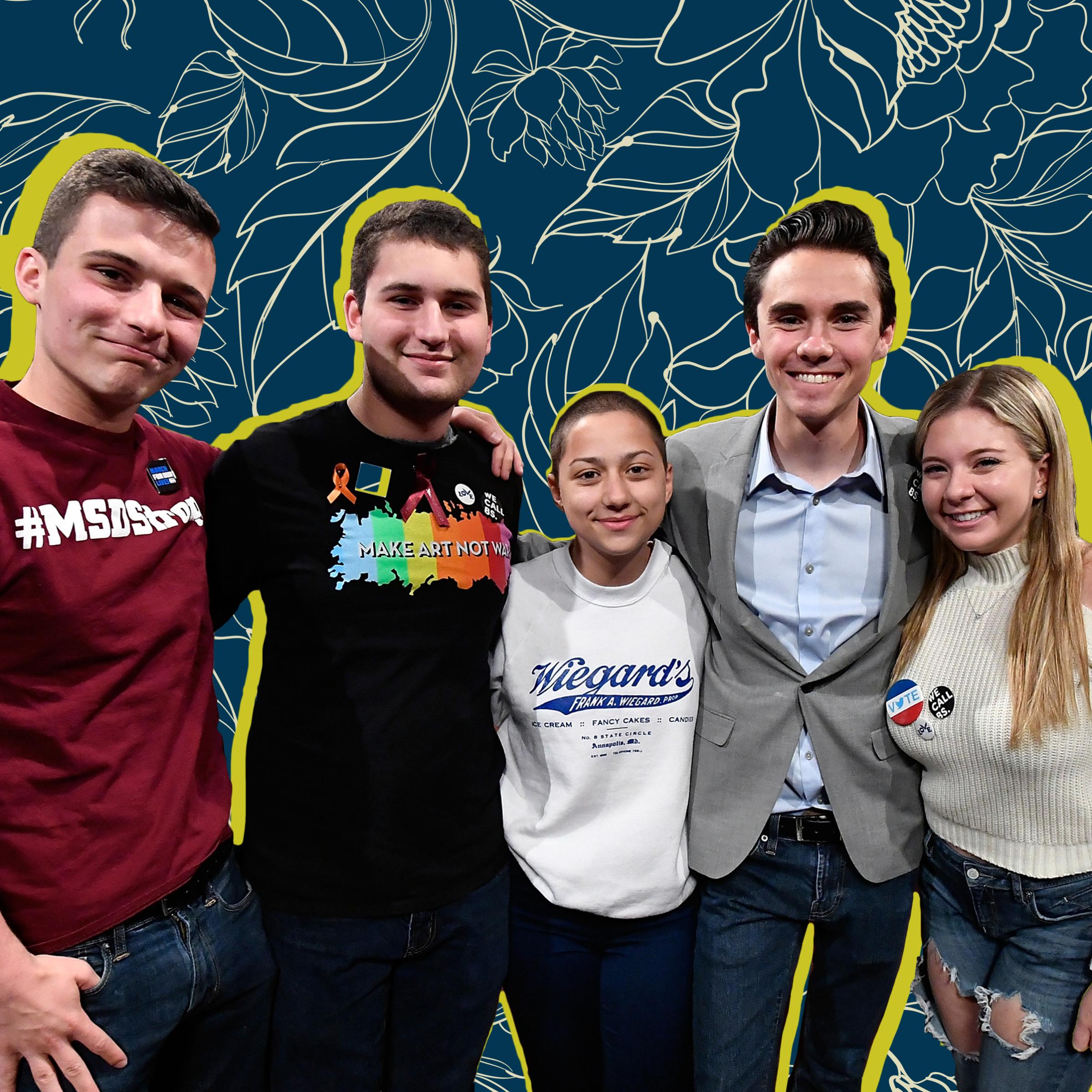
After 17 of their friends and faculty members were killed in a school shooting in Parkland, Fla. in February, the student survivors from Marjory Stoneman Douglas High School emerged as some of America’s loudest and fiercest voices for gun control. The young activists—including Jaclyn Corin, Emma Gonzalez, David Hogg, Cameron Kasky, Alex Wind and more—largely wielded their influence on Twitter, where they challenged the NRA and urged their followers to hold elected officials accountable, often using humor. In March, the teens used social media to rouse hundreds of thousands of people to rally for new gun control laws at a historic march in Washington, D.C. They also helped their home state pass a new law that, in part, raises the minimum age to purchase a firearm to 21. Next up? They’re traveling the country on a summer bus tour to register voters. —Melissa Chan
Ariel Martin (a.k.a. Baby Ariel)

It wasn’t enough for 17-year-old Ariel Martin, known to her fans as Baby Ariel, to be the most popular star on Musical.ly. (She currently has nearly 28 million followers on the lip-synching app alone.) After signing to Atlantic Records, Martin started releasing her own original music, with four pop songs in 2018 that have racked up over 70 million YouTube views and 15 million Spotify streams. With more than 40 million followers across social media, including a popular YouTube channel where she posts music videos, pranks, makeup tutorials and confessionals, the Florida-based entertainer has been quick to connect with her fandom offline, too: Martin has her own merchandise line, appears at various digital creator conferences, wrote an upcoming biography and made a foray into improv comedy. After winning the Teen Choice Award for Choice “Muser” two years in a row, she has been nominated again in the category for 2018, while keeping up her active online presence and promoting positivity, self-acceptance and anti-bullying behavior.—Raisa Bruner
Kylie Jenner
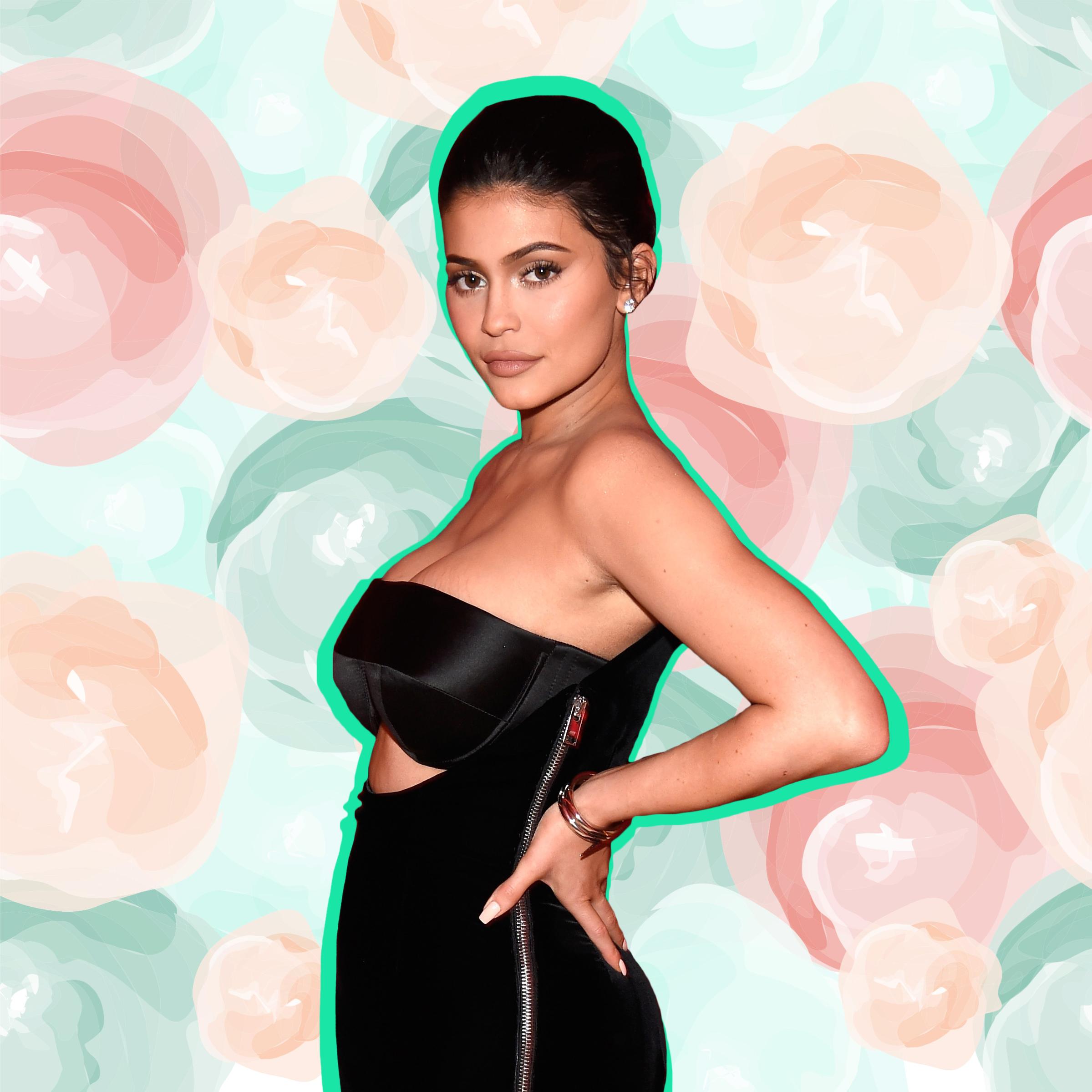
If Jenner’s social media domination was ever in question, any uncertainty was snuffed out during a period of weeks this past February. First, the 20-year-old youngest sibling in the Kardashian-Jenner clan posted the first photo of her newborn baby to Instagram, revealing Stormi Webster’s name to the world and ousting Beyoncé’s 2017 pregnancy photo to become the most-liked image ever posted on the platform. A couple weeks later, she tweeted about her lack of interest in Snapchat—on which she was once the most followed celebrity—prompting the app’s parent company to lose more than $1.3 billion in market value. By one estimate, Jenner is now the highest-paid celebrity on Instagram, with each sponsored post worth the equivalent of $1 million (about a fifth the cost of a Super Bowl commercial). She may not be the most followed among her famous sisters, but her ability to engage legions of fans—and customers—has been for her business, Kylie Cosmetics, as spinach was to Popeye. She’s now on track, by some estimates, to become a billionaire by her 25th birthday.—Eliza Berman
More Must-Reads from TIME
- Donald Trump Is TIME's 2024 Person of the Year
- Why We Chose Trump as Person of the Year
- Is Intermittent Fasting Good or Bad for You?
- The 100 Must-Read Books of 2024
- The 20 Best Christmas TV Episodes
- Column: If Optimism Feels Ridiculous Now, Try Hope
- The Future of Climate Action Is Trade Policy
- Merle Bombardieri Is Helping People Make the Baby Decision
Contact us at letters@time.com